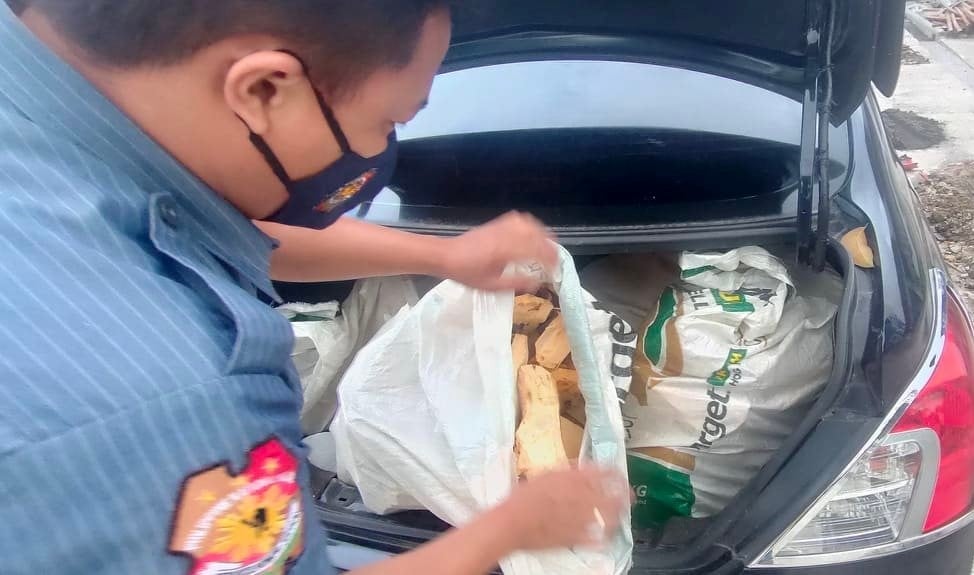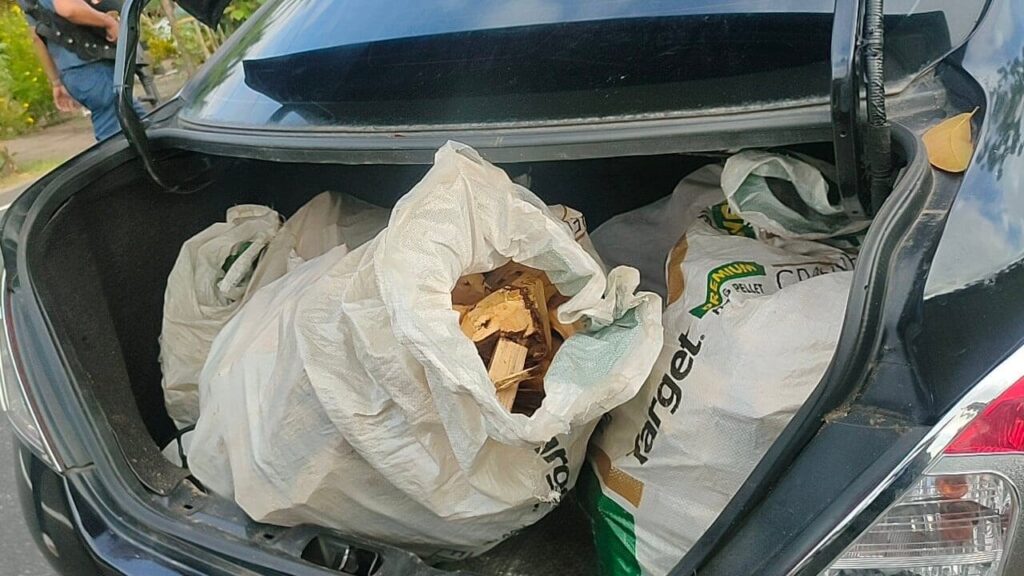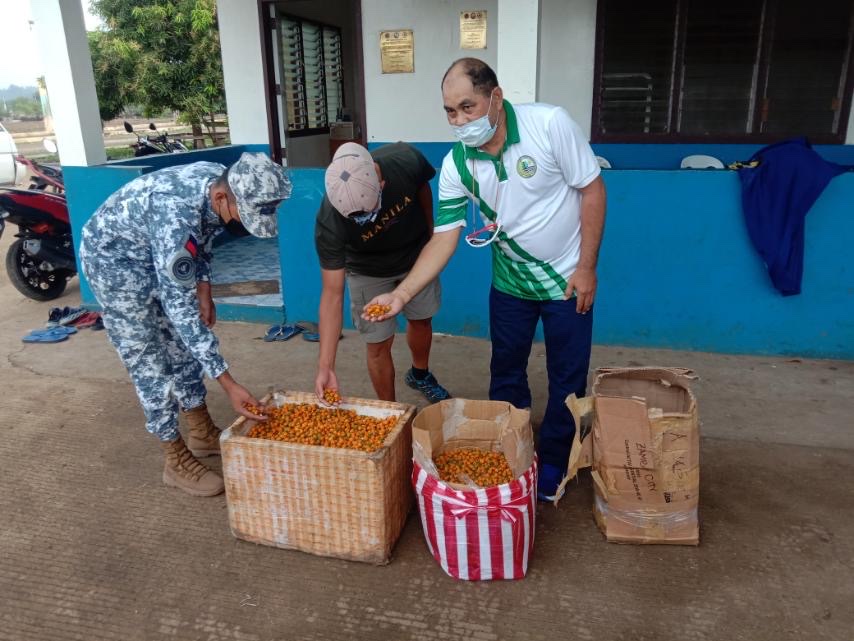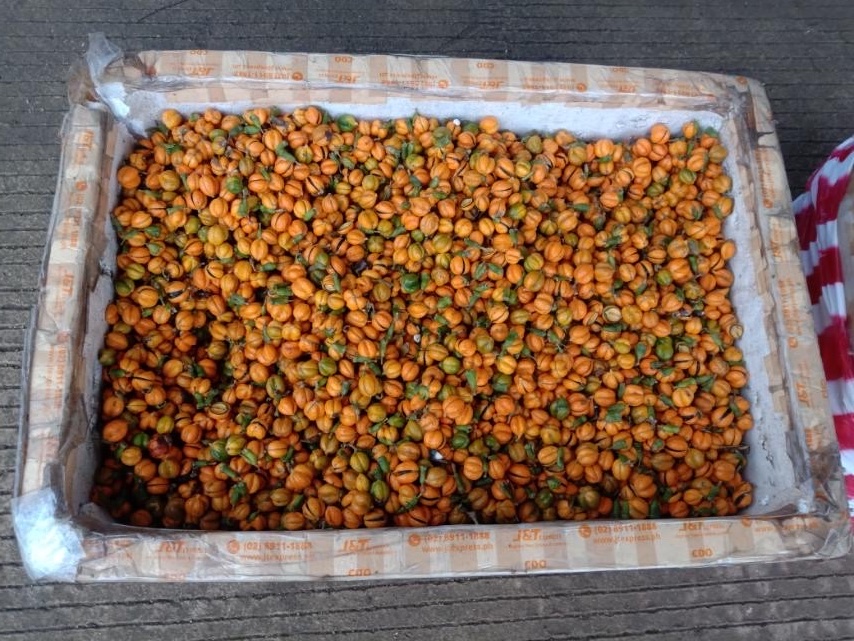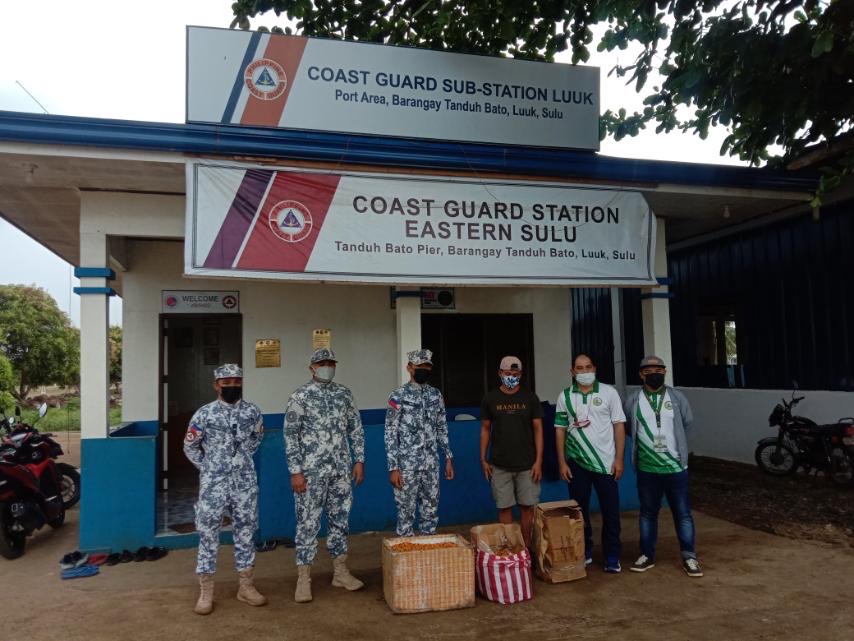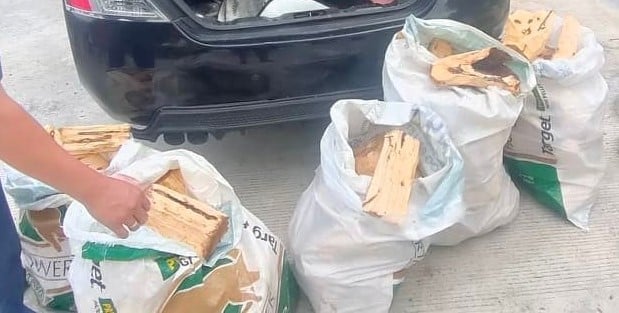
MAHIGIT 2.7 MILLION NA HALAGA NG AGARWOOD LULAN NG ISANG NISSAN ALMERA, NASABAT SA ISINAGAWANG PNP CHECKPOINT SA GUBAT, SORSOGON
Arestado ang isang lalaki sa isinagawang PNP checkpoint nitong nakaraang Marso 15, 2022 dakong alas-singko y media ng hapon dahil sa paglabag ng Sec 78 of PD 705 o ang Revised Forestry Code as amended by PD NO. 1559, Executive Order No. 277 at ng Republic Act No. 7161.
Ang nasabing operasyon ay pinangunahan ng Provincial Intelligence Unit ng SOR PPO katuwang ang Gubat MPS.
Una nang nakatanggap ng report ang Provincial Intelligence Unit ng SOR PPO tungkol sa isang kulay itim na NISSAN ALMERA na may kargang AGARWOOD O “Lapnisan” na bumabyahe diumano galing sa Brgy. Paco, Gubat, Sorsogon. Dahil sa report na ito, kaagad nagsagawa ng Intel-driven operation ang Provincial Intelligence Unit katuwang ang kapulisan ng Gubat MPS. Sa utos ng Provincial Director na si PCOL ARTURO P BRUAL JR ay inalerto ang mga nakatalaga sa lahat ng checkpoint areas kung saan ito ay na-flagged down sa Barangay Buenavista, Gubat, Sorsogon at positibong kargado ng limang (5) sako na naglalaman ng AGARWOOD chunks na tinatayang humigit kumulang sa 136 kilos na may market value na Php 2,730,000.00 million pesos.
Ang AGARWOOD (Lapnisan) na tinaguriang “wood of the Gods” ay isa sa mga pinakamahal na uri ng punongkahoy sa buong mundo at kabilang sa listahan ng DENR’s Endangered/threatened Philippine plants kung kaya mahigpit na pinagbabawal ang pagbebenta nito.
Sa kasalukuyan, ang nasabing suspetsado ay nasampahan na ng kaukulang kaso kung saan walang pyansang nakatalaga para sa kanyang pansamantalang paglaya. Kapag napatunayang nagkasala ay haharapin niya ang pagkakabilanggo mula anim hanggang labindalawang taon at multang Php100,000.00 hanggang Php1,000,000.00.
Ang nakumpiskang Agarwood ay nasa kustodiya na ng DENR para sa kaukulang disposisyon. Ang pangangalaga sa likas na yaman ng ating bansa ay tungkulin ng bawat Pilipino. Ang PNP ay nakahanda lagi sa pagprotekta at agaran ang aksyong gagawin kapag may mga paglabag sa ating Inang Kalikasan.Panatilihin ang pagiging mapagmatyag at isuplong agad sa mga otoridad kapag may mga ganitong insidente sa SOR PPO hotline # 0998 598 6057 o sa pinakamalapit na himpilan ng pulisya.

